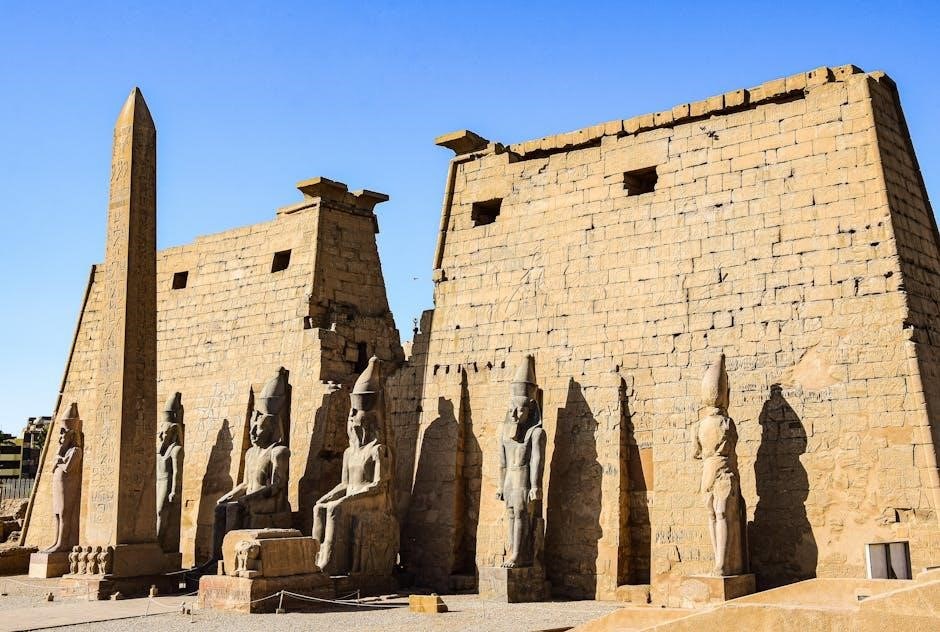
Darius the Great Is Not Okay, a debut novel by Adib Khorram, explores themes of identity, mental health, and cultural belonging through the journey of Darius Kellner. This heartfelt story, published in 2018, has resonated with readers worldwide, earning critical acclaim and the William C. Morris Debut Award. Darius’s struggles with clinical depression, his fractional Persian identity, and his first trip to Iran create a poignant and relatable narrative. The book’s authentic voice and emotional depth have made it a standout in contemporary YA literature, offering a powerful exploration of self-discovery and acceptance.
Overview of the Book
Darius the Great Is Not Okay by Adib Khorram is a poignant young adult novel that follows Darius Kellner, a clinically depressed high school sophomore, as he navigates identity, family, and mental health. Fluent in Klingon but struggling with Farsi, Darius embarks on his first trip to Iran, where he reconnects with his grandparents and meets Sohrab, a neighbor who changes his life. This heartfelt debut explores themes of belonging, cultural disconnect, and self-acceptance, offering a raw and relatable portrayal of adolescence and identity. Published in 2018, the book has garnered widespread acclaim for its authentic voice and emotional depth, resonating with readers globally.
Author Background: Adib Khorram
Adib Khorram is an Iranian-American author known for his heartfelt and thought-provoking young adult novels. Born and raised in Kansas, Khorram draws from his own experiences as a “fractional Persian” to craft authentic stories about identity and belonging. His debut novel, Darius the Great Is Not Okay, published in 2018, earned the William C. Morris Debut Award and critical acclaim for its raw portrayal of mental health, cultural struggles, and family dynamics. Khorram’s work is celebrated for its emotional depth and relatable characters, resonating with readers of all ages.
Publication Details and Editions
Darius the Great Is Not Okay was published on August 28, 2018, by Dial Books, an imprint of Penguin Random House. The novel spans 322 pages and is available in multiple formats, including hardcover, paperback, eBook, and PDF. It has also been released in EPUB and Kindle editions for digital readers. The book gained widespread recognition, winning the 2019 William C. Morris Debut Award. Its popularity led to high demand, with the PDF version being particularly sought after for its readability and convenience, making it accessible to a global audience.

Main Character: Darius Kellner
Darius Kellner is a clinically depressed high school sophomore struggling with feelings of inadequacy in both America and Iran. Fluent in Klingon but not Farsi, he navigates identity and belonging.

Identity Struggles: Fractional Persian
Darius Kellner grapples with his identity as a “Fractional Persian,” feeling caught between his American upbringing and Iranian heritage. His fluency in Klingon contrasts with his struggles to speak Farsi, symbolizing his cultural disconnect. Darius’s journey to Iran forces him to confront feelings of inadequacy and explore what it means to belong. His internal conflict reflects the challenges of navigating dual identities, making his story deeply relatable to those who feel caught between cultures and struggle to find their place.
Clinical Depression and Mental Health
Darius Kellner struggles with clinical depression, which profoundly impacts his self-perception and daily life. His journey is marked by feelings of inadequacy and a deep-seated belief that he is “not enough.” The novel portrays his mental health struggles with raw honesty, exploring themes of self-acceptance and the challenges of seeking help. Through Darius’s experiences, the book highlights the importance of therapy and coping mechanisms, offering a relatable and authentic portrayal of living with depression. His story resonates with readers, fostering empathy and understanding.
Cultural Disconnect: America vs. Iran
Darius Kellner experiences a profound cultural disconnect, feeling caught between his American upbringing and Iranian heritage. His struggles with Farsi and Persian customs highlight his sense of not fully belonging in either culture. The novel explores this tension through his first trip to Iran, where he grapples with societal expectations and family dynamics. Darius’s journey reflects the challenges of navigating dual identities, ultimately revealing the complexity of cultural belonging and the search for acceptance in both worlds.

Plot Summary
Darius the Great Is Not Okay follows Darius Kellner’s journey as he navigates clinical depression, family dynamics, and cultural identity during his first trip to Iran, discovering unexpected connections and growth through his relationships with his grandparents and Sohrab.
First Trip to Iran
Darius Kellner’s first trip to Iran is a pivotal moment in his life, marked by emotional turmoil and self-discovery. Struggling with clinical depression and feelings of inadequacy, Darius navigates a foreign culture while reconnecting with his grandparents and extended family. His journey is complicated by his “Fractional Persian” identity, as he grapples with belonging in both America and Iran. The trip introduces him to Sohrab, a neighbor who becomes a significant influence, and forces Darius to confront his mental health and sense of purpose in a new and unfamiliar environment.
Family Dynamics and Relationships
Darius’s family dynamics are complex, shaped by cultural expectations and personal struggles. His relationship with his father is strained, marked by criticism and unmet expectations. In Iran, he finds solace in his grandparents’ love and understanding, particularly his ailing grandfather, who offers wisdom and acceptance. His grandmother’s warmth provides comfort, contrasting with the distance he feels from his parents. The trip also introduces Sohrab, a neighbor who becomes a close friend, offering Darius a sense of belonging and connection he had been missing in America.
The Impact of Sohrab
Sohrab, Darius’s neighbor in Iran, becomes a pivotal figure in his life, offering unconditional acceptance and friendship. Unlike Darius’s strained relationships in America, Sohrab’s easy camaraderie helps him feel seen and valued. Their bond transcends cultural barriers, providing Darius with a sense of belonging he had been lacking. Sohrab’s influence is transformative, helping Darius confront his insecurities and embrace his identity. Their friendship becomes a cornerstone of Darius’s journey toward self-acceptance and healing, highlighting the power of human connection in overcoming adversity.

Cultural and Identity Themes
This novel explores Darius’s struggle with his Persian heritage, language barriers, and cultural identity, delving into themes of belonging and self-acceptance in a heartfelt narrative.
Persian Heritage and Belonging
Darius’s journey is deeply intertwined with his Persian heritage, as he grapples with feeling like a “Fractional Persian.” His trip to Iran exposes him to a culture he barely understands, yet deeply yearns to connect with. The novel highlights his struggle to reconcile his American upbringing with his Iranian roots, exploring themes of belonging and identity. Through his experiences, Darius learns to embrace his dual heritage, finding strength in the complexities of his cultural background and the love of his family.
Language Barriers: Klingon vs. Farsi
Darius’s fluency in Klingon contrasts sharply with his struggles to speak Farsi, reflecting his fragmented cultural identity. While Klingon represents his geeky passions, Farsi symbolizes his disconnected Persian heritage. This language barrier underscores his feelings of inadequacy and cultural displacement. Darius’s inability to speak Farsi fluently exacerbates his sense of not fully belonging in Iran or America, highlighting the complexities of his dual identity and his quest for acceptance and connection to his roots.

Mental Health in the Story
Darius the Great Is Not Okay delves into Darius’s clinical depression, showcasing his struggles with self-acceptance and emotional pain. The narrative provides a raw, realistic portrayal of mental health, emphasizing the importance of understanding and addressing inner turmoil. Darius’s journey highlights the challenges of living with depression and the gradual process of seeking help and healing.
Depression and Self-Acceptance
Darius the Great Is Not Okay offers a poignant portrayal of clinical depression, highlighting Darius’s struggles with self-worth and emotional pain. His journey is marked by feelings of inadequacy, amplified by cultural expectations and personal insecurities. Through his experiences, the novel underscores the complexity of mental health, emphasizing the importance of self-compassion and acceptance. Darius’s gradual path toward healing, influenced by relationships and self-reflection, provides a realistic and hopeful perspective on managing depression and embracing one’s true self.
Therapy and Coping Mechanisms
Darius’s journey highlights the role of therapy and coping mechanisms in managing mental health. His sessions provide a safe space to explore emotions, while humor and interests, like Klingon language, serve as unique coping strategies. The novel emphasizes the importance of seeking help and embracing support systems, whether through professional guidance or loved ones. Darius’s gradual acceptance of therapy underscores the value of vulnerability and the ongoing process of healing in navigating depression and self-acceptance.

Family and Relationships
Darius’s relationships with his grandparents and Sohrab offer emotional support, contrasting with his strained bond with his father. These connections aid his journey of self-discovery and healing.
Grandparents’ Influence
Darius’s grandparents play a pivotal role in his journey, offering unconditional love and wisdom. His ailing grandfather and loving grandmother provide a sense of belonging and cultural connection. Their presence helps Darius navigate his identity struggles, fostering a deeper understanding of his Persian heritage. Through their stories and traditions, they bridge the gap between his American upbringing and Iranian roots, giving him a sense of home. Their influence is a cornerstone in his emotional growth and self-acceptance, highlighting the importance of family ties.
Challenging Father-Son Relationship
Darius’s relationship with his father is strained, marked by criticism and unmet expectations. His father’s disapproval exacerbates Darius’s feelings of inadequacy, particularly regarding his identity and mental health. The emotional distance between them reflects broader cultural and generational gaps. However, their shared experiences in Iran subtly shift their dynamic, offering glimmers of understanding and connection. This complex relationship underscores the challenges of communication and the enduring impact of parental influence on self-perception and growth.

Themes and Symbolism
Darius the Great Is Not Okay explores themes of identity, belonging, and self-worth, weaving cultural and personal journeys into a rich tapestry of emotional and symbolic depth.
Belonging and Identity
Darius the Great Is Not Okay delves deeply into themes of belonging and identity, as Darius navigates his fractional Persian heritage and feelings of inadequacy in both America and Iran. His struggle to connect with his cultural roots, despite being fluent in Klingon but not Farsi, highlights the complexity of identity. The novel explores how Darius’s journey to Iran and his relationships with family and friends shape his understanding of self and belonging, ultimately revealing the power of embracing one’s true identity.
Authenticity and Self-Worth
Darius the Great Is Not Okay profoundly explores authenticity and self-worth through Darius’s journey of self-discovery. Struggling with clinical depression and feelings of inadequacy, Darius learns to embrace his true self amidst cultural and personal challenges. His relationships, particularly with Sohrab, highlight the importance of unconditional acceptance and the power of authenticity. The novel shows how self-worth is not about fitting into societal expectations but about embracing one’s unique identity and finding acceptance in being oneself.
Reception and Awards
Darius the Great Is Not Okay won the William C. Morris Debut Award and received widespread critical acclaim for its heartfelt portrayal of mental health and identity. Readers praised its authenticity, earning a 4.8/5 rating across 96 reviews, solidifying its place as a contemporary YA standout.
William C. Morris Debut Award
Darius the Great Is Not Okay won the prestigious William C. Morris Debut Award in 2019, recognizing its outstanding contribution to young adult literature. This honor highlights the book’s authentic voice, emotional depth, and nuanced exploration of identity, mental health, and cultural struggles. The award underscores Adib Khorram’s skillful storytelling and the novel’s ability to resonate with readers, solidifying its place as a memorable and impactful debut in contemporary YA fiction.
Reader and Critical Reviews
Darius the Great Is Not Okay has garnered widespread acclaim from both readers and critics. With a 4.8/5 rating from 96 reviews, the book is praised for its heartfelt portrayal of mental health, identity, and cultural struggles. Readers appreciate its authentic voice and emotional depth, while critics highlight its nuanced storytelling. Becky Albertalli, award-winning author, describes it as “tender and so utterly real,” further cementing its reputation as a compelling and impactful read in contemporary YA literature.

PDF and Digital Availability
Darius the Great Is Not Okay is available in PDF, EPUB, and Kindle formats. Published by Penguin and Dial Books, it’s easily accessible online. Its high ratings reflect its popularity and ease of access in digital formats.
Benefits of the PDF Format
The PDF format of Darius the Great Is Not Okay offers numerous advantages, including consistent formatting across devices and easy readability. It retains the book’s original layout, ensuring a seamless reading experience. PDFs are also widely compatible with various platforms, making it accessible on smartphones, tablets, and computers. Additionally, PDFs are often free from distractions, allowing readers to focus solely on the text. This format is ideal for those who prefer a clean, unalterable version of the book, enhancing the overall reading experience for fans of Adib Khorram’s work.
Where to Download the PDF
The PDF of Darius the Great Is Not Okay can be downloaded from various online platforms, including Amazon, Google Books, and dedicated eBook websites. Many sites offer free or paid versions, depending on availability. Readers can also check libraries or subscription services like Scribd for access. Ensure to use legitimate sources to support the author and publisher. This convenient format allows readers to enjoy the book on multiple devices, making it easily accessible for fans of Adib Khorram’s compelling narrative.

Reading the Book
Reading Darius the Great Is Not Okay offers a deeply emotional journey through Darius’s struggles with identity and mental health. The book’s authentic voice and heartfelt narrative make it a compelling read, resonating with readers who appreciate stories of self-discovery and growth.
Why Read “Darius the Great Is Not Okay”
Darius the Great Is Not Okay is a heartfelt and thought-provoking novel that explores themes of identity, mental health, and cultural belonging. Through Darius’s journey, readers gain insight into the challenges of clinical depression, the complexities of fractional identity, and the importance of human connection. Adib Khorram’s authentic voice and nuanced storytelling make this book a relatable and impactful read, offering a fresh perspective on self-discovery and acceptance. It’s a story that resonates deeply, leaving a lasting impression on its audience.
Engaging with the Story
Darius the Great Is Not Okay captivates readers with its raw emotional depth and relatable protagonist. Darius’s struggles with identity, mental health, and cultural disconnect resonate deeply, making his journey feel personal and authentic. The story’s balance of humor and heartache, along with its vivid portrayal of Persian heritage, creates a compelling narrative. Readers are drawn into Darius’s world, connecting with his vulnerabilities and celebrating his growth. The PDF format ensures easy access, allowing readers to immerse themselves in this unforgettable tale of self-discovery and belonging.
Darius the Great Is Not Okay leaves a lasting impact with its heartfelt exploration of identity, mental health, and cultural heritage. A must-read for its authentic voice and emotional depth, the book resonates deeply, offering a powerful story of self-discovery and belonging. Its legacy as a contemporary YA classic is undeniable, making it a cherished read for many.
Legacy of the Book
Darius the Great Is Not Okay has left an indelible mark on young adult literature, celebrated for its raw honesty and nuanced portrayal of mental health and identity. Winning the William C. Morris Debut Award, it has become a beacon for authentic storytelling. Readers worldwide have connected with Darius’s journey, making it a modern classic. Its exploration of cultural heritage and self-acceptance continues to resonate, ensuring its legacy as a powerful and enduring tale of growth and belonging.
Final Thoughts and Recommendations
Darius the Great Is Not Okay is a profound and moving novel that offers a unique perspective on identity, mental health, and cultural heritage. Its authentic voice and relatable protagonist make it a must-read for anyone seeking a heartfelt story. The book’s exploration of self-acceptance and belonging resonates deeply, leaving a lasting impact. For those interested, the PDF format is widely available, providing easy access to this incredible work. Highly recommended for its emotional depth and universal themes.





No comment yet, add your voice below!